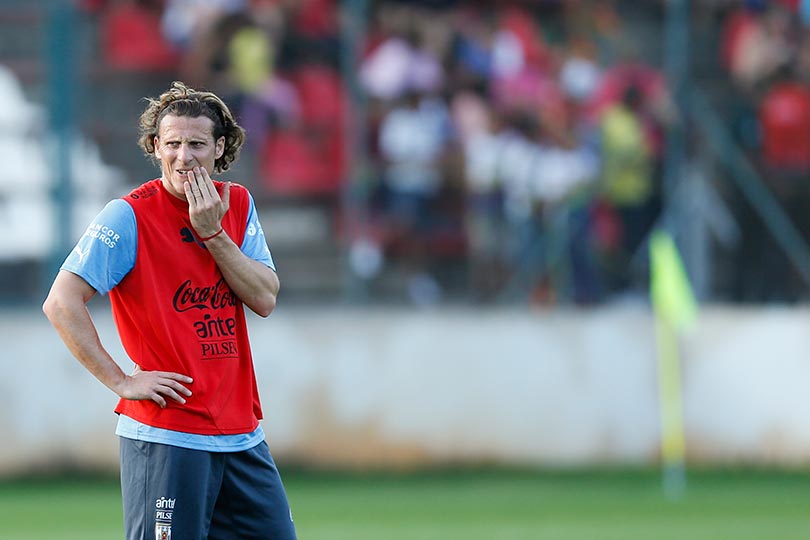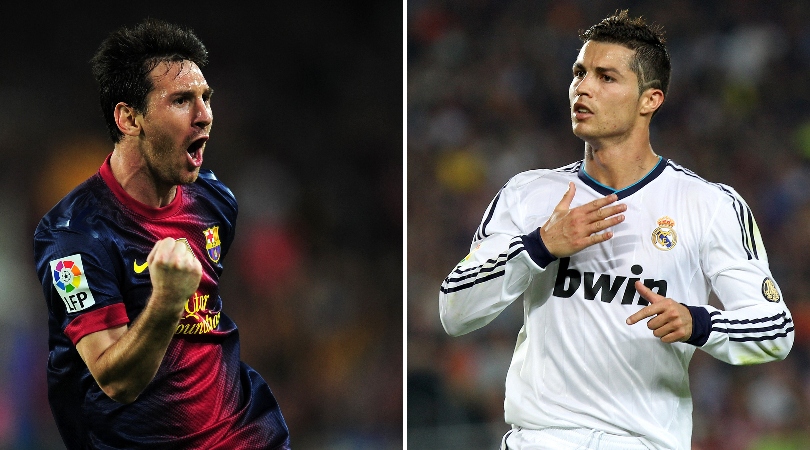Diego Forlan: My 24-hour food diary
Uruguayan hotshot Diego Forlan reveals his daily diet

8AM: BREAKFAST
Diego Forlan: I start the day with a plate of pineapple. I like sweet things and the taste wakes me up. Then I’ll have some toast – brown bread – with butter, followed by yoghurt. Sometimes I will eat an omelette with ham and cheese – I like the white of the egg rather than the yolk. To drink, maybe I’ll take some freshly squeezed orange juice, and that’s enough fuel before training.
Matt Lovell, Tottenham Hotspur and England rugby team nutritionist: Fresh pineapple is an excellent food for a footballer. The important part to eat is the wood core – it’s high in bromelain, a digestive enzyme that can help players recover from injury by reducing inflammation. An omelette is high in protein and that will help slow down the absorption of carbs from the bread and pineapple and help even out your blood sugar levels. Protein is also good for muscle repair.
Matt recommends... Amateur players should have toast as a snack before training. The brown bread will provide carbohydrates, which breaks down into glucose – the preferred fuel for working muscles. I’d suggest spreading jam or honey on the toast, which will increase your blood sugar levels and replenish your muscle glycogen stores. Porridge or Weetabix would be just as good. I would recommend only a small glass of orange juice as it is pure sugar.
Related article: How to make a healthy full English breakfast
1PM: LUNCH
Diego: After two or three hours of training I will go straight for lunch. Maybe I’ll have it at the club; maybe at a restaurant in Madrid with friends or family. Whoever I’m with, I tend to have pasta or rice and chicken. Perhaps I’ll have spaghetti with oil on top and maybe a little bit of cheese. If I take the chicken, then it will be grilled and never fried. That’s much better for you.
Matt: Your body digests pasta very quickly, which will replenish your depleted energy stores. The chicken is also very digestible and will give your body protein, which will aid muscle repair after the stress your body has been under during training. Recovery is key to performing day in, day out.
Matt recommends... There are post-match drinks that contain both carbohydrates and protein – chocolate milk, for example, which is an excellent substitute if you don’t have access to whey protein. This will help with muscle repair, recovery and refuelling. I’d suggest having a green leafy salad as well.
Related article: 4 easy to make super salads
4PM: AFTERNOON SNACK
Diego: Later in the afternoon, I will usually put some fruits like orange and pineapple into a blender and drink the juice. What do you call that in English? (A smoothie). OK, I did not know that. I’ll add a little water and ice and it becomes a smoothie, right? It tastes good, especially in the hot Madrid summer. The nutrition people say that you should have at least five portions of fruit or vegetables each day. I think I have at least 10! Maybe I’ll take a toasted sandwich with that too, or some cereal.
Get FourFourTwo Newsletter
The best features, fun and footballing quizzes, straight to your inbox every week.
Matt: The smoothie will be full of vitamins and anti-oxidants, which will help you recover faster and help your body prepare for your next training session or match. Having worked hard in the morning, Diego’s metabolism will be working faster and this additional energy top up will help his body refuel.
Matt recommends... Adding a scoop of whey protein to the smoothie will also assist with recovery. The amino acids in whey protein help in numerous ways: in particular, improving recovery times so you can train harder next time and boosting your immune system so you don’t get ill.
Related article: The perfect football snack
9PM: EVENING MEAL
Diego: I’ll eat my last meal of the day at night. In Manchester, people ate their dinner at 5pm or 6pm. In Madrid, they don’t go out for a meal until 11pm in the summer because it’s too hot before then. If I’m at home then I’ll eat around 9pm, usually some fish with salad. I like lots of fresh tomatoes and steamed vegetables. I know the food I eat is healthy and good for my body, but I really enjoy everything that I eat. And not everything I eat is good. Sometimes, just sometimes, I will have some dulce de leche (caramelised milk). You don’t really have that in England. For drinks, I have a lot of water throughout the day to stay hydrated. I have water in training too. I don’t drink alcohol and I’m not used to it. I tried it when I was younger, but have not had it for many years.
Matt: He’s eating late at night, which is not ideal, but it’s OK because fish is easily and quickly digested, as are the vegetables. Eating light at this time is key because anything heavy will take time to digest and slow him down the next day. Plus, his body won’t be burning off the fuel overnight. The caramelised milk may help him relax and unwind and get a good night’s sleep. Sleep is really important for recovery and optimal performance.
Matt recommends... For this evening meal I would suggest a dish with white fish – haddock, plaice, pollack, coley, cod – with broccoli, beans and tomatoes.
Related article: The ultimate matchday meals
